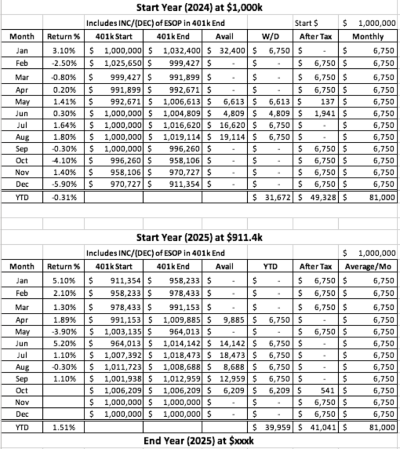I would view principal as what I invested... aka basis (even in tax-deferred accounts)... unless one keeps meticulous records few of us know what that amount is.
For example, over they years you have invested 500k that has grown to be $1m (be it from interest or dividends reinvested or unrealized appreciation)... or could even be $500k in a CD that has grown over the years.... for most here it is very unlikely that you will ever dip into principal.
Too many posters seem to have an unhealthy fear of their portfolio declining... unless they have a WR more than 4% and a spot of bad times even a decline in value is unlikely not to mention ever dipping into principal.
We retired at the right time... our portfolio is 125% of what it was when we retired despite 8 years of withdrawals plus withdrawals to buy a winter condo, a truck and rebuild our one-car garage to a two-car garage with bonus loft that were all paid in cash... add in the value of those withdrawals and our portfolio is 140% of what it was when we retired.


